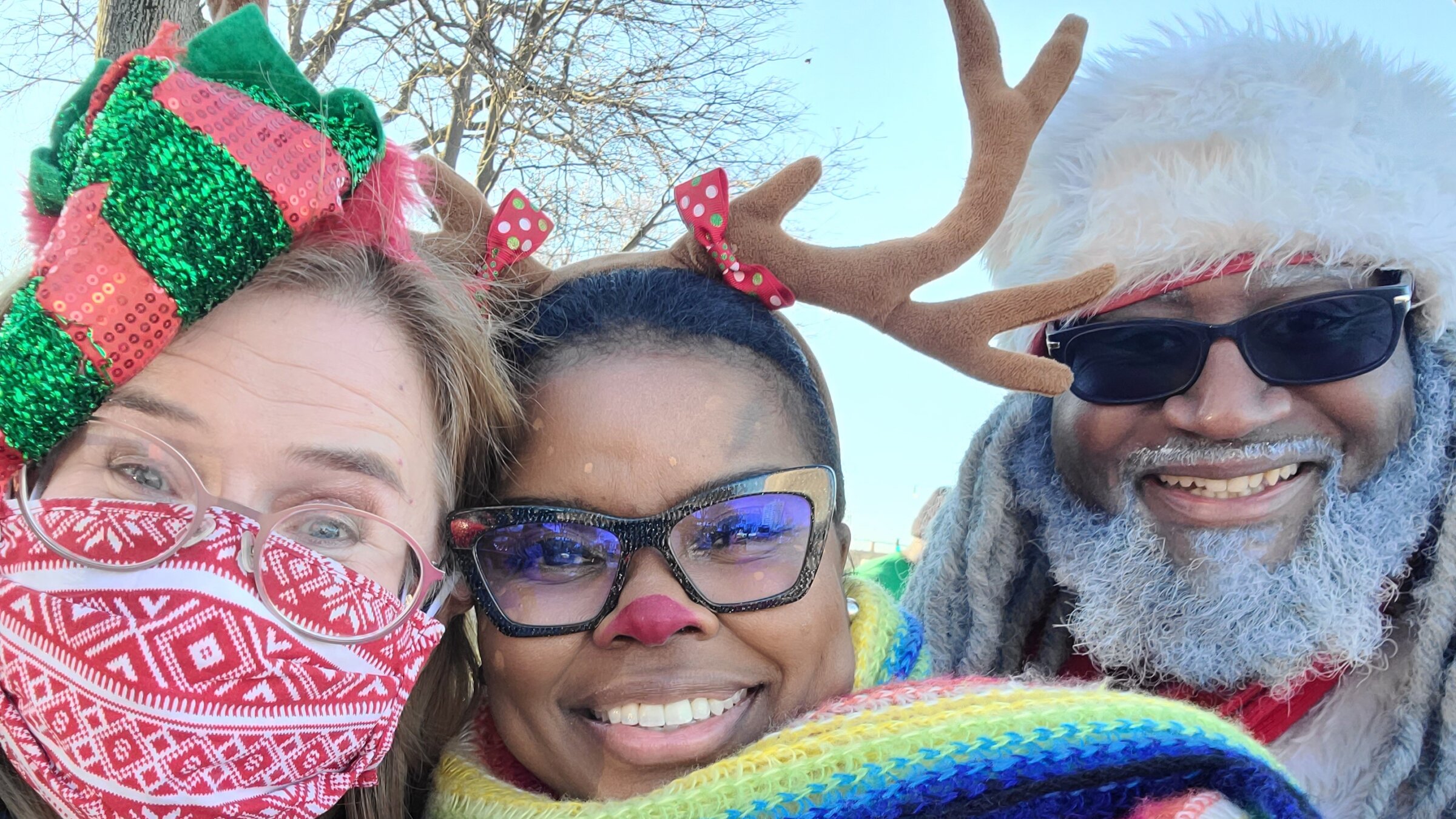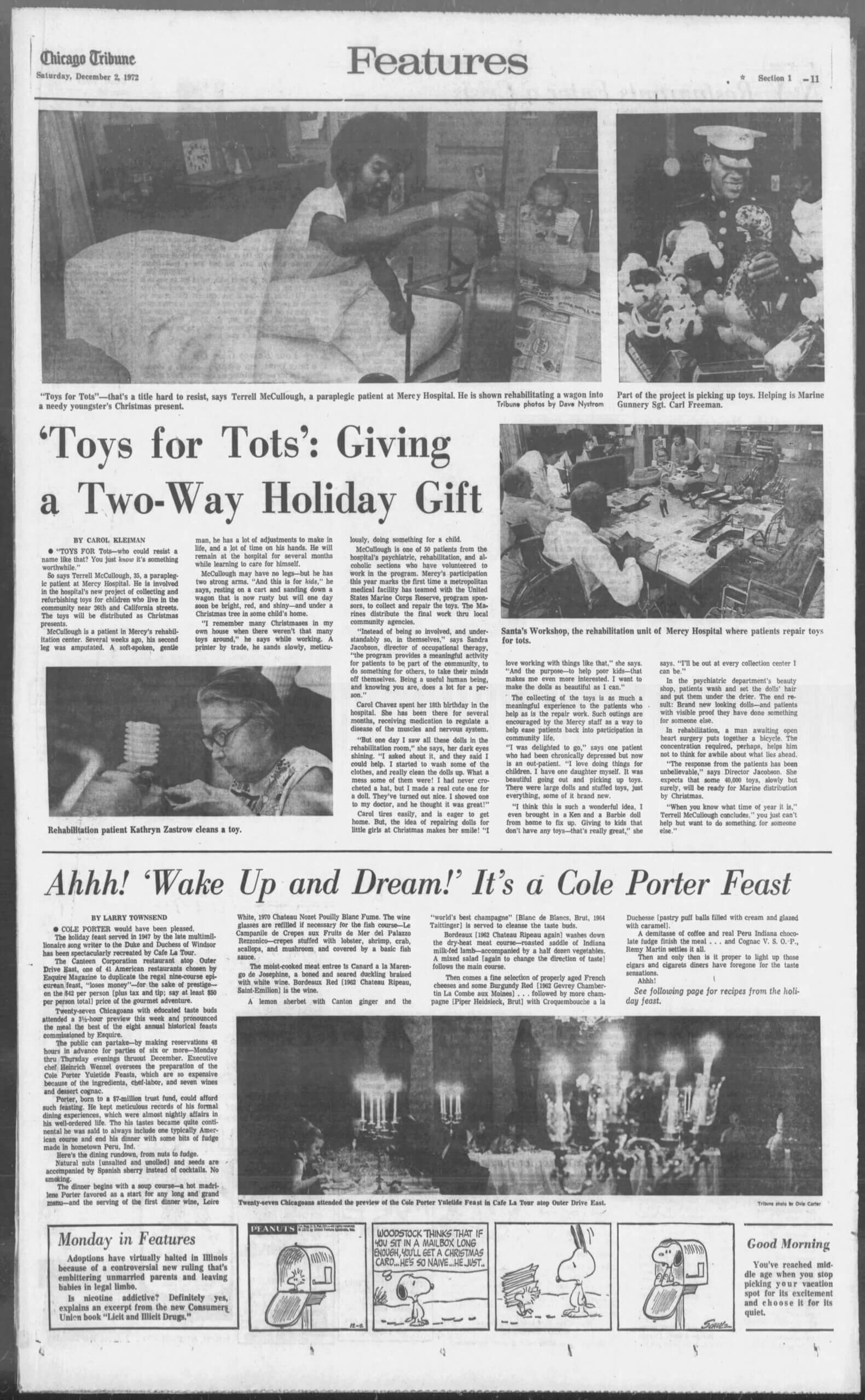My favorite Jewish Christmas tradition: do a mitzvah for children in need
My family believes in showing up for our neighbors — and there’s no better time to live that value than Christmas

The author (center) helping distribute toys on Christmas day. Courtesy of Tamar Manasseh
For the past seven Christmases, I have led a caravan of people — Jews, and non-Jews, Blacks and whites — delivering toys to needy children around Chicago’s south and west sides.
Every year, I get the same question: How can a Jew lead a Christmas caravan? My answer is simple: I’m fulfilling the mitzvah of showing love to my neighbors. And I’m doing it in honor of an uncle I never met, and a grandmother I deeply loved, both of whom demonstrated the profound meaning of selflessly living out that value.
My uncle Terrell participated in the very first Toys for Tots in 1972. He did so by refurbishing toys from his hospital bed at a local rehabilitation facility. Terrell was a paraplegic, the result of getting shot in the back by a police officer when he was just 18 years old.
Terrell died a few years before I was born, but my mother and her siblings talked about him constantly as a way of keeping him alive to my family. They saw parts of him in their children, whom he never got to meet. One of us had hair like his; some others had his complexion. It was made clear that he would always be a part of our family because he was part of each one of us.

On some level, we could experience love for him by witnessing the palpable love our parents had for him. I always felt that if he were to walk through the door, I would have known exactly who he was. It couldn’t have been easy to be a young man confined to a wheelchair when he should’ve been out enjoying his youth. He had plenty of reasons to be filled with bitterness. But he wasn’t.
He still gave. He gave with everything he had. From his hospital bed, he made sure that some poor kid somewhere got a gift for Christmas. He was the definition of what I would one day come to know as a mensch — a person of honor and integrity. Also, a person who is admired for their kindness.
It shouldn’t have been surprising when, as an adult, I decided that I couldn’t sit on the sidelines and do nothing while there were kids in my community who were in need of so much. It was in my DNA. I was hardwired to care, just like my uncle.
And like my grandmother, who I got to see, throughout my life, giving of her whole self. For many people, she was the go-to, the port in the storm. She didn’t have any money, but people still sought her out in times of need for her kindness, her concern, and her heart.
When I started attending Jewish day school, we gave tzedakah and donated canned goods to food pantries every week. My grandmother would always give me a dollar and two cans of some vegetables, and send me on my way. She was happy that the values of giving and caring about the welfare of others that I was being taught at home were being reinforced in my classroom and in my faith.
As a Jew, I can’t imagine not giving or helping someone in need. That includes on Christmas. My Christian friends and neighbors are supposed to accept and respect who I am as a Jew; it’s an imperative, to me, to do the same for them. Helping them observe their holiday in no way diminishes my Jewishness; it only enhances it.
Long before I knew what the words “tzedakah,” “mitzvah,” or “mensch” meant, my family was exemplifying these behaviors. Before my family reverted to Judaism, they were good people who lived lives full of Torah, even if they didn’t know it.
Taking care of one another went back to the ships that carried us away from our homeland and our families. Slavery created legions of orphans, widows and strangers, and we survived through each other’s kindness. We looked out for the children who were sold away from their mothers and who still needed watching over when they were strangers on a new plantation. We helped the newcomers coming up from the south and piling into a Black Belt on Chicago’s south side when it was already bursting at the seams. It was my grandmother and my Auntie Vera putting what little they had together to feed both of their families.
Now imagine me not helping those same people or supporting them because it’s December 25.
I am several people within one person. Both my Black and my Jewish selves are wholly and fully formed, with different cultures and separate histories, each having shaped the other. Neither one can or should be diminished in order to be fully visible to the other. They are both equal.
I’m never more proud to be Jewish or more faithful to it than when I get to give to needy people on Christmas. To me, nothing makes me more Jewish than when I help those around me celebrate their holiday.
Even if that holiday is Christmas.
















